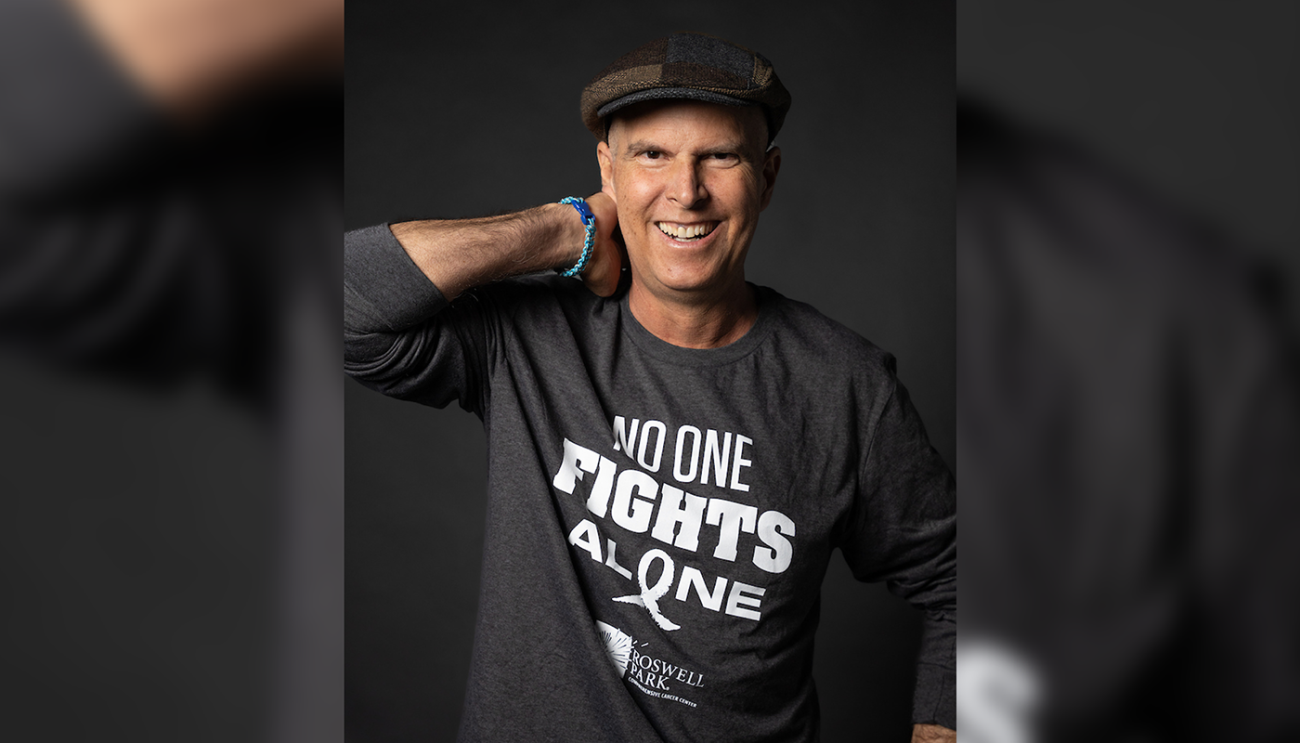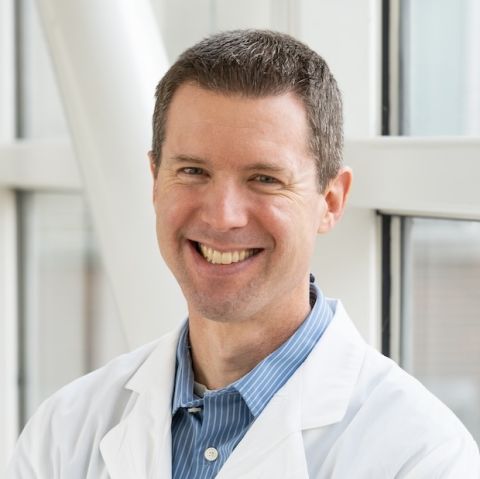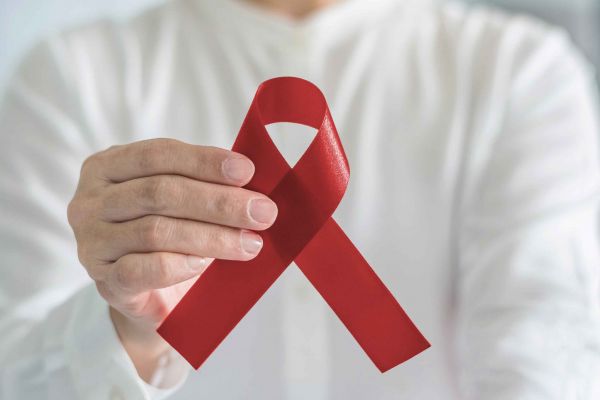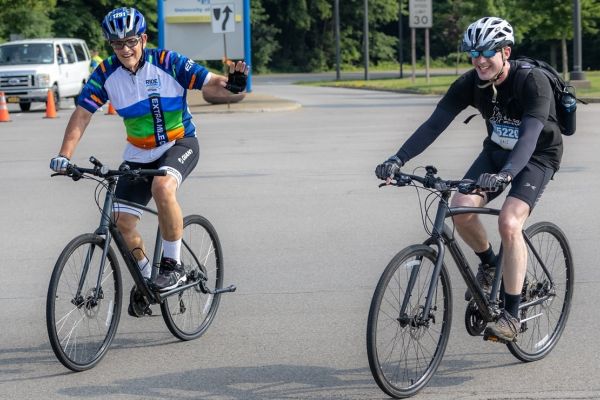Transplant expertise and first-rate care was worth the 2+ hour drive to Roswell Park.
Paul McNulty has always been an active person, participating in baseball, softball, golf and other sports. When he started to lose weight unexpectedly and generally feel weaker, he tried to shrug it off as a sports injury.
“I would bump into guys playing baseball and then dive playing softball and my ribs just hurt. It started hurting in the bones and it was the kind of pain that didn’t go away. It didn’t make sense,” he says. “I’ve never really been badly sick — a broken bone here and there, but never bad. Then I realized, wait, I’ve lost 25, 30 pounds. Finally, my wife said we’re taking you to the doctor.”
Initial tests indicated abnormal blood results, so he visited an oncologist closer to his home in Conneaut Lake, Pennsylvania, where he was advised to get a second opinion about a possible diagnosis of multiple myeloma. A trip to another center left Paul and his wife feeling “unimpressed,” and after she did some research, they drove up to Roswell Park Comprehensive Cancer Center.
They met with both Jens Hillengass, MD, PhD, and Phil McCarthy, MD, two hematologic oncology experts on the multiple myeloma team, and immediately felt they were in good hands. Multiple myeloma is a rare disease, one that can be present in a person’s body for years in a state called “smoldering myeloma,” before becoming detectable or negatively affecting their health. But at Roswell Park, physicians like Drs. Hillengass and McCarthy see patients with the disease every day.
“We were impressed with them and have come here since,” Paul says, adding that his Roswell Park doctors work in close communication with his physicians at home.
Personalizing Paul’s treatment
His first meeting was with Dr. Hillengass to learn a little about the therapy he was receiving in Pennsylvania. “His main thing was that he has a familial cancer syndrome, Lynch Syndrome, and he wanted to know whether it was related to his multiple myeloma,” Dr. Hillengass explains.
Lynch Syndrome is a genetic condition that increases the risk of developing some cancers. But it’s more associated with colorectal and endometrial cancer, not multiple myeloma. As a result, Dr. Hillengass and Dr. McCarthy decided Paul’s course of treatment would not increase his risk of developing other cancers.
You have time for a second opinion
Treatment for multiple myeloma has evolved so that stem cell transplant and CAR T-cell therapies increase your chances of remission — Roswell Park provides these advanced treatment options.
“High-dose chemotherapy with autologous stem cell transplantation is genotoxic and can cause mutations in the genes, but it’s still considered the standard of care because the benefit the patient gets outweighs the risk for secondary cancers," Dr. Hillengass explains.
It was during this treatment at Roswell Park that Paul was introduced to the New Era Cap Foundation Elevate Salon. “I knew I was going to lose my hair and I didn’t want my wife or sister to have to deal with it,” he says. “I’m a halfway hairy guy to begin with, so when my sister found out about the salon, we went in there and they gave me a buzz cut. They gave me a couple hats and I was shocked to find out we didn’t have to pay for it. We were blown away by that. It was a very nice surprise – and there aren’t many nice surprises when it comes to cancer.”
Roswell Park is able to offer these compassionate services at the New Era Cap Foundation Elevate Salon thanks to generous donor funding which provided for the renovated space in 2022.
An autologous stem cell transplant
After securing his wardrobe of hats, Paul’s treatment at Roswell Park was largely transferred over to Dr. McCarthy for a stem cell transplant, which is another standard treatment for multiple myeloma.
The drug given before a stem cell transplant for multiple myeloma wipes out the patient’s blood and marrow system, Dr. McCarthy explains. “They get very tired from it. Their cell counts slowly decline. In about 10-14 days, after the transplant, the patient’s own blood system repopulates the peripheral blood and their cell counts start to go up,” he says.
As an active guy, Paul says the inability to move around much for a few weeks after the treatment was frustrating, but he’s feeling much better now and is back to his normal activities, including his job managing a movie theater. His most recent tests confirmed no evidence of disease, meaning he is in remission.
It’s important to note that there is no cure for multiple myeloma and that Paul will continue to receive maintenance treatment. But things are improving all the time: in the 1980s, the median survival rate — meaning the length of time that half of treated patients are alive — for someone with multiple myeloma was around three years, but now the median survival for multiple myeloma patients is more than 10 years and approaching 15 years. New treatments, including the option of chimeric antigen receptor (CAR) T-cell therapy for multiple myeloma, mean patients have more options than ever, with Roswell Park researchers working on next-generation cellular therapies as well.
Brighter days ahead
Now that he’s more than 100 days past his transplant, Paul is eligible to participate in a trial offered by Dr. Hillengass which studies the health benefits of exercise and strength training for multiple myeloma patients. It seemed a natural fit for someone who likes to stay on the move, Dr. Hillengass says.
Paul is focused on his health but also remains impressed with the treatment he received at Roswell Park. He’s deeply appreciative of the doctors, nurses and the support team at the Elevate Salon for their care of him over the past year.
“I was very impressed with Roswell Park and everybody there. They do a great job of scheduling all my appointments on the same day because they know we’re making the two hour and 20-minute drive up,” he says.
“I would recommend Roswell Park in a heartbeat. They didn’t just go through the motions of taking care of you. They talked to you, and some shared their own personal experiences with cancer. I can’t say enough good things about everyone at Roswell Park.”
Visit the Salon
The New Era Cap Foundation Elevate Salon is a specialty salon for cancer patients experiencing hair loss due to treatment - let us help guide your through this journey.
Editor’s Note: Cancer patient outcomes and experiences may vary, even for those with the same type of cancer. An individual patient’s story should not be used as a prediction of how another patient will respond to treatment. Roswell Park is transparent about the survival rates of our patients as compared to national standards, and provides this information, when available, within the cancer type sections of this website.





